IP
-
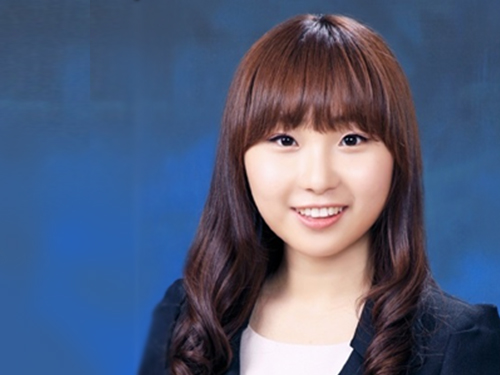 KAIST's Doctoral Student Receives a Hoffman Scholarship Award
Hyo-Sun Lee, a doctoral student at the Graduate School of EEWS (Environment, Energy, Water and Sustainability), KAIST, is a recipient of the 2016 Dorothy M. and Earl S. Hoffman Scholarships presented by the American Vacuum Society (AVS). The award ceremony took place during the Society’s 63rd International Symposium and Exhibition on November 6-11, 2016 in Nashville, Tennessee.
Lee is the first Korean and foreign student to receive this scholarship.
The Hoffman Scholarships were established in 2002 to recognize and encourage excellence in graduate studies in the sciences and technologies of interest to AVS. The scholarships are funded by a bequest from Dorothy M. Hoffman, who was a pioneering member of the Society of Women Engineers and served as the president of AVS in 1974.
Lee received the scholarship for her research that detects hot electrons from chemical reactions on catalytic surface using nanodevices. Nano Letters, an academic journal published by the American Chemical Society, described her work in its February 2016 issue as a technology that allows quantitative analysis of hot electrons by employing a new nanodevice and therefore helps researchers understand better the mechanism of chemical reactions on nanocatalytic surface. She also published her work to detect the flow of hot electrons that occur on metal nanocatalytic surface during hydrogen oxidation reactions in Angewandte Chemie.
Lee said, “I am pleased to receive this honor from such a world-renowned academic society. Certainly, this will be a great support for my future study and research.”
Founded in 1953, AVS is an interdisciplinary, professional society composed of approximately 4,500 members worldwide. It supports networking among academic, industrial, government, and consulting professionals involved in a range of established and emerging science and technology areas such as chemistry, physics, engineering, business, and technology development.
2016.11.17 View 10137
KAIST's Doctoral Student Receives a Hoffman Scholarship Award
Hyo-Sun Lee, a doctoral student at the Graduate School of EEWS (Environment, Energy, Water and Sustainability), KAIST, is a recipient of the 2016 Dorothy M. and Earl S. Hoffman Scholarships presented by the American Vacuum Society (AVS). The award ceremony took place during the Society’s 63rd International Symposium and Exhibition on November 6-11, 2016 in Nashville, Tennessee.
Lee is the first Korean and foreign student to receive this scholarship.
The Hoffman Scholarships were established in 2002 to recognize and encourage excellence in graduate studies in the sciences and technologies of interest to AVS. The scholarships are funded by a bequest from Dorothy M. Hoffman, who was a pioneering member of the Society of Women Engineers and served as the president of AVS in 1974.
Lee received the scholarship for her research that detects hot electrons from chemical reactions on catalytic surface using nanodevices. Nano Letters, an academic journal published by the American Chemical Society, described her work in its February 2016 issue as a technology that allows quantitative analysis of hot electrons by employing a new nanodevice and therefore helps researchers understand better the mechanism of chemical reactions on nanocatalytic surface. She also published her work to detect the flow of hot electrons that occur on metal nanocatalytic surface during hydrogen oxidation reactions in Angewandte Chemie.
Lee said, “I am pleased to receive this honor from such a world-renowned academic society. Certainly, this will be a great support for my future study and research.”
Founded in 1953, AVS is an interdisciplinary, professional society composed of approximately 4,500 members worldwide. It supports networking among academic, industrial, government, and consulting professionals involved in a range of established and emerging science and technology areas such as chemistry, physics, engineering, business, and technology development.
2016.11.17 View 10137 -
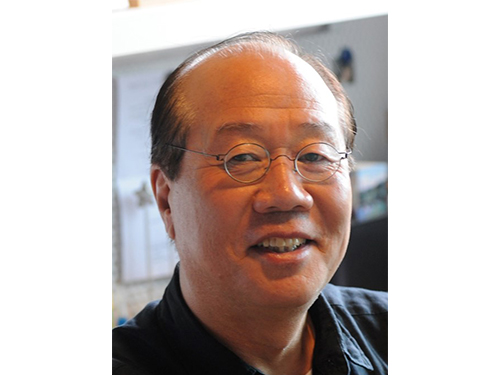 Professor Kun-pyo Lee Appointed Honorary Fellow of the Design Research Society
Founded in the United Kingdom (UK) in 1966, the Design Research Society is an international academic organization that promotes excellence in design and supports the interests of the design research community.
Professor Kun-pyo Lee of the Industrial Design Department at KAIST received his honorary fellowship from the Society at its 50th international conference held from June 27, 2016 to July 3, 2016 in Brighton, UK.
The Society recognized Professor Lee’s academic achievements and his contribution to the advancement of design research nationally and globally. To date, only eight researchers have received honorary fellowships from the Society, and he is the first Asian to become an honorary fellow.
Professor Lee has worked at KAIST for more than 30 years as a professor in industrial engineering and served on various important positions such as the president of the Korean Society of Design Science, the president of the International Association of Societies of Design Research, an executive vice president of the Corporate Design Center at LG Electronics, and an advisory board member for Human-centered Design Network in Japan and UXnet in the United States.
By introducing the concept of user experience (UX) in Korea for the first time, he developed this field while focusing on user-centered designs to optimize interactive digital products as well as interaction design to create mental and physical interfaces between people and interactive digital products, services, and systems.
Professor Lee said, “I am pleased to become an honorary fellow of the Design Research Society. For quiet some time, industrial design remained in the domain of practical studies, lacking the kind of support needed to grow as an independent academic and research discipline, but this has changed rapidly in recent years. I will continue to remain actively involved in the development of industrial design engineering in Korea and the world.”
2016.07.19 View 8435
Professor Kun-pyo Lee Appointed Honorary Fellow of the Design Research Society
Founded in the United Kingdom (UK) in 1966, the Design Research Society is an international academic organization that promotes excellence in design and supports the interests of the design research community.
Professor Kun-pyo Lee of the Industrial Design Department at KAIST received his honorary fellowship from the Society at its 50th international conference held from June 27, 2016 to July 3, 2016 in Brighton, UK.
The Society recognized Professor Lee’s academic achievements and his contribution to the advancement of design research nationally and globally. To date, only eight researchers have received honorary fellowships from the Society, and he is the first Asian to become an honorary fellow.
Professor Lee has worked at KAIST for more than 30 years as a professor in industrial engineering and served on various important positions such as the president of the Korean Society of Design Science, the president of the International Association of Societies of Design Research, an executive vice president of the Corporate Design Center at LG Electronics, and an advisory board member for Human-centered Design Network in Japan and UXnet in the United States.
By introducing the concept of user experience (UX) in Korea for the first time, he developed this field while focusing on user-centered designs to optimize interactive digital products as well as interaction design to create mental and physical interfaces between people and interactive digital products, services, and systems.
Professor Lee said, “I am pleased to become an honorary fellow of the Design Research Society. For quiet some time, industrial design remained in the domain of practical studies, lacking the kind of support needed to grow as an independent academic and research discipline, but this has changed rapidly in recent years. I will continue to remain actively involved in the development of industrial design engineering in Korea and the world.”
2016.07.19 View 8435 -
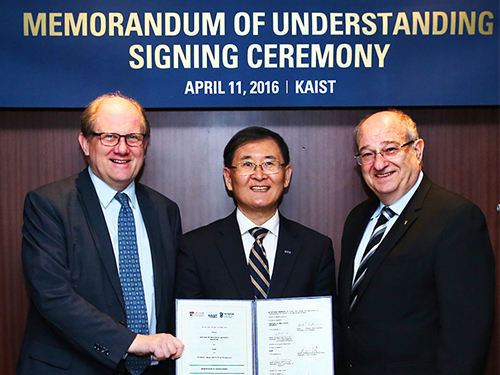 KAIST, NTU, and Technion Collaborate for Research in Emerging Fields
KAIST, Nanyang Technological University (NTU) of Singapore, and Technion of Israel signed an agreement on April 11, 2016 in Seoul to create a five-year joint research program for some of the most innovative and entrepreneurial areas: robotics, medical technologies, satellites, materials science and engineering, and entrepreneurship. Under the agreement, the universities will also offer dual degree opportunities, exchange visits, and internships.
In the picture from the left, Bertil Andersson of NTU, Sung-Mo Kang of KAIST, and Peretz Lavie of Technion hold the signed memorandum of understanding.
2016.04.14 View 12087
KAIST, NTU, and Technion Collaborate for Research in Emerging Fields
KAIST, Nanyang Technological University (NTU) of Singapore, and Technion of Israel signed an agreement on April 11, 2016 in Seoul to create a five-year joint research program for some of the most innovative and entrepreneurial areas: robotics, medical technologies, satellites, materials science and engineering, and entrepreneurship. Under the agreement, the universities will also offer dual degree opportunities, exchange visits, and internships.
In the picture from the left, Bertil Andersson of NTU, Sung-Mo Kang of KAIST, and Peretz Lavie of Technion hold the signed memorandum of understanding.
2016.04.14 View 12087 -
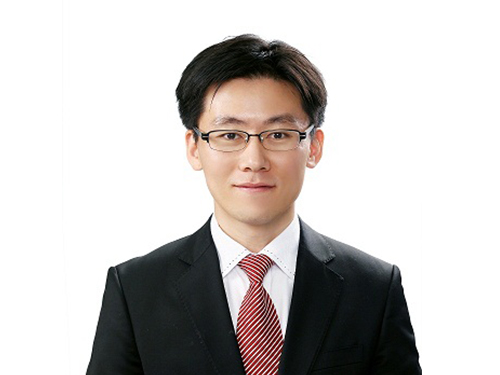 GSIS Graduates Its First Doctor
The Graduate School of Information Security at KAIST (GSIS) granted its first doctoral degree to Il-Goo Lee at the university’s 2016 commencement on February 19, 2016.
Lee received the degree for his dissertation entitled “Interference-Aware Secure Communications for Wireless LANs.”
He explained the background of his research:
“As we use wireless technology more and more in areas of the Internet of Things (IoT), unmanned vehicles, and drones, information security will become an issue of major concern. I would like to contribute to the advancement of communications technology to help minimize wireless interference between devices while ensuring their optimal performance.”
Based on his research, he developed a communications technique to increase wireless devices’ energy efficiency and the level of their security, and created a prototype to showcase that technique.
He plans to continue his research in the development of the next generation WiFi chip sets to protect the information security of IoT and wireless devices.
Since its establishment in March 2011, KAIST’s GSIS has conferred 50 master’s and one doctoral degrees.
2016.02.18 View 9579
GSIS Graduates Its First Doctor
The Graduate School of Information Security at KAIST (GSIS) granted its first doctoral degree to Il-Goo Lee at the university’s 2016 commencement on February 19, 2016.
Lee received the degree for his dissertation entitled “Interference-Aware Secure Communications for Wireless LANs.”
He explained the background of his research:
“As we use wireless technology more and more in areas of the Internet of Things (IoT), unmanned vehicles, and drones, information security will become an issue of major concern. I would like to contribute to the advancement of communications technology to help minimize wireless interference between devices while ensuring their optimal performance.”
Based on his research, he developed a communications technique to increase wireless devices’ energy efficiency and the level of their security, and created a prototype to showcase that technique.
He plans to continue his research in the development of the next generation WiFi chip sets to protect the information security of IoT and wireless devices.
Since its establishment in March 2011, KAIST’s GSIS has conferred 50 master’s and one doctoral degrees.
2016.02.18 View 9579 -
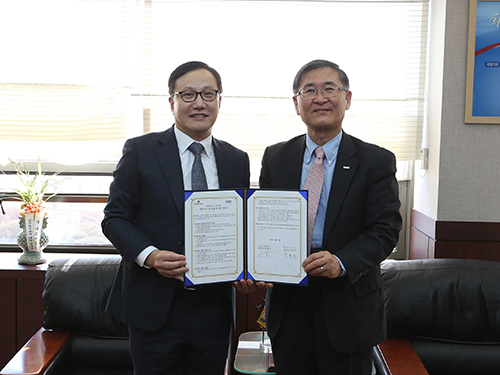 Meditox Donates 600 Million KRW Scholarship
On February 17, a Korean biopharmaceutical company Meditox, headed by Chief Executive Officer (CEO) Hyun-Ho Jeong, signed a memorandum of understanding (MOU) with KAIST to establish the “Meditox Fellowship” and donated a total of 600 million Korean won (KRW) to the university to assist in promoting more scientists in the field of biology.
Meditox CEO Hyun-Ho Jeong, KAIST President Steve Kang, Dean of Life Science and Bioengineering College Jung-Hoe Kim, and Dean of the Department of Biological Sciences Byung-Ha Oh participated in the agreement ceremony.
According to the MOU, Meditox will donate 60,000,000 KRW over a ten year period, from which KAIST can draw on to grant scholarships for master’s and doctoral students.
The “Meditox Fellowship” will support promising and enthusiastic students whose finances limit their studies. The first scholarship students for 2016 were: Kwang-Uk Min, In-suk Yeo, Sung-ryung- Lee, Si-on Lee, and Jung-hyun Kim.
Meditox CEO Jeong, who graduated from KAIST’s Department of Biological Sciences, said, "I felt it was important to start the Meditox Fellowship at my alma mater to contribute to the cultivation of outstanding scientists in the field of biological sciences."
He also said that he would plan to launch projects that aim to support not only those who receive the scholarship but also the development of Korea’s biological sciences in general.
President Steve Kang (right) and Chief Executive Officer Hyun-Ho Jeong (left) of Meditox hold the signed memorandum of understanding together.
2016.02.18 View 10621
Meditox Donates 600 Million KRW Scholarship
On February 17, a Korean biopharmaceutical company Meditox, headed by Chief Executive Officer (CEO) Hyun-Ho Jeong, signed a memorandum of understanding (MOU) with KAIST to establish the “Meditox Fellowship” and donated a total of 600 million Korean won (KRW) to the university to assist in promoting more scientists in the field of biology.
Meditox CEO Hyun-Ho Jeong, KAIST President Steve Kang, Dean of Life Science and Bioengineering College Jung-Hoe Kim, and Dean of the Department of Biological Sciences Byung-Ha Oh participated in the agreement ceremony.
According to the MOU, Meditox will donate 60,000,000 KRW over a ten year period, from which KAIST can draw on to grant scholarships for master’s and doctoral students.
The “Meditox Fellowship” will support promising and enthusiastic students whose finances limit their studies. The first scholarship students for 2016 were: Kwang-Uk Min, In-suk Yeo, Sung-ryung- Lee, Si-on Lee, and Jung-hyun Kim.
Meditox CEO Jeong, who graduated from KAIST’s Department of Biological Sciences, said, "I felt it was important to start the Meditox Fellowship at my alma mater to contribute to the cultivation of outstanding scientists in the field of biological sciences."
He also said that he would plan to launch projects that aim to support not only those who receive the scholarship but also the development of Korea’s biological sciences in general.
President Steve Kang (right) and Chief Executive Officer Hyun-Ho Jeong (left) of Meditox hold the signed memorandum of understanding together.
2016.02.18 View 10621 -
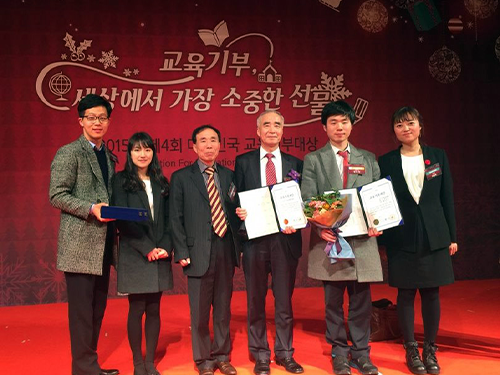 KAIST Wins the Korea Donation for Education Awards 2015
KAIST received the grand prize for the university section at the Korea Donation for Education Awards 2015. The award ceremony took place at Seoul Plaza Hotel on December 15, 2015.
The Ministry of Education created the award in 2012 to raise awareness about the need for charitable donations for education and to encourage the public’s participation in such endeavors. Recipients have included private companies, public institutions, non-profit organizations, universities, and individuals who have made notable contributions to education, for example, by offering educational programs or fundraising for such programs throughout a year.
Many organizations within KAIST, including the KAIST Center of Donation for Education, the Midam Scholarship Committee, the Donation for Software Education Group, the Chalk Academy, KAIST Student Volunteers, and K-LET, have been collectively recognized for their efforts to develop educational materials and managing academic camps and programs.
In addition to the grand prize which KAIST won, the Ministry of Education gave Neung-In Jang, a student pursuing a social entrepreneurship MBA at KAIST, an award for his efforts to provide quality education to teenagers by establishing the Midam Scholarship Committee in 2009. The Scholarship aims to revitalize the culture of donation for education by offering free math and science classes to high school students who are less privileged and by inspiring other universities in Korea to follow suit the committee’s volunteering activities.
2015.12.22 View 10097
KAIST Wins the Korea Donation for Education Awards 2015
KAIST received the grand prize for the university section at the Korea Donation for Education Awards 2015. The award ceremony took place at Seoul Plaza Hotel on December 15, 2015.
The Ministry of Education created the award in 2012 to raise awareness about the need for charitable donations for education and to encourage the public’s participation in such endeavors. Recipients have included private companies, public institutions, non-profit organizations, universities, and individuals who have made notable contributions to education, for example, by offering educational programs or fundraising for such programs throughout a year.
Many organizations within KAIST, including the KAIST Center of Donation for Education, the Midam Scholarship Committee, the Donation for Software Education Group, the Chalk Academy, KAIST Student Volunteers, and K-LET, have been collectively recognized for their efforts to develop educational materials and managing academic camps and programs.
In addition to the grand prize which KAIST won, the Ministry of Education gave Neung-In Jang, a student pursuing a social entrepreneurship MBA at KAIST, an award for his efforts to provide quality education to teenagers by establishing the Midam Scholarship Committee in 2009. The Scholarship aims to revitalize the culture of donation for education by offering free math and science classes to high school students who are less privileged and by inspiring other universities in Korea to follow suit the committee’s volunteering activities.
2015.12.22 View 10097 -
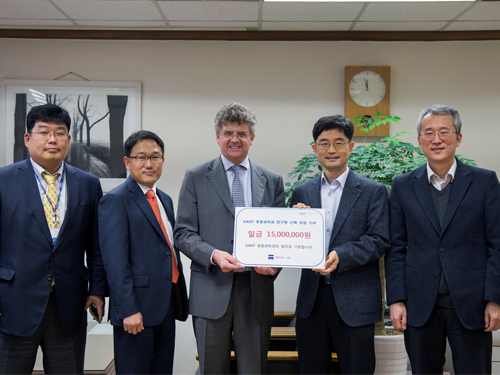 More Donations Arrive to Establish the New Medicine Research and Development Center on Campus
A raft of businesses continues to make donations to establish a new medicine research and development center on campus. The Department of Biological Sciences at KAIST is leading the fundraising campaign.
On November 9, 2015, Nikon Instruments Korea Co., Ltd. contributed USD 8,500 to the fundraising, followed by Carl Zeiss AG and Three-Shine Inc., which donated USD 12,800 and 8,500, respectively.
Bruno Lin, an Executive Director at Carl Zeiss AG in Korea, said, “I’m very glad to participate in this fundraising initiative for the Biological Sciences Department at KAIST, one rapidly reaching out to the world.”
From the left in the picture are Vice President Tae-Hoon Kim, Director Gyu-Hyeok Lee, and Executive Director Bruno Lin of Carl Zeiss AG, Byung-Ha Oh, Dean of the Biological Sciences Department, and Professor Eunjoon Kim.
From the left in the picture are Byung-Ha Oh, Dean of the Biological Sciences Department, President Chun-Gui Park of Three-Shine Inc., and Professor Daesoo Kim.
President Chun of Three-Shine Inc., said, “We hope that the Department of Biological Sciences at KAIST, aided by the construction of new research center, will produce practical research achievements and stand on the frontier of new medicine development research in Korea.”
The New Medicine Research and Development Center will be equipped with state-of-the-art, purpose-built research facilities to support convergent, interdisciplinary research in biomedicine.
2015.11.27 View 8051
More Donations Arrive to Establish the New Medicine Research and Development Center on Campus
A raft of businesses continues to make donations to establish a new medicine research and development center on campus. The Department of Biological Sciences at KAIST is leading the fundraising campaign.
On November 9, 2015, Nikon Instruments Korea Co., Ltd. contributed USD 8,500 to the fundraising, followed by Carl Zeiss AG and Three-Shine Inc., which donated USD 12,800 and 8,500, respectively.
Bruno Lin, an Executive Director at Carl Zeiss AG in Korea, said, “I’m very glad to participate in this fundraising initiative for the Biological Sciences Department at KAIST, one rapidly reaching out to the world.”
From the left in the picture are Vice President Tae-Hoon Kim, Director Gyu-Hyeok Lee, and Executive Director Bruno Lin of Carl Zeiss AG, Byung-Ha Oh, Dean of the Biological Sciences Department, and Professor Eunjoon Kim.
From the left in the picture are Byung-Ha Oh, Dean of the Biological Sciences Department, President Chun-Gui Park of Three-Shine Inc., and Professor Daesoo Kim.
President Chun of Three-Shine Inc., said, “We hope that the Department of Biological Sciences at KAIST, aided by the construction of new research center, will produce practical research achievements and stand on the frontier of new medicine development research in Korea.”
The New Medicine Research and Development Center will be equipped with state-of-the-art, purpose-built research facilities to support convergent, interdisciplinary research in biomedicine.
2015.11.27 View 8051 -
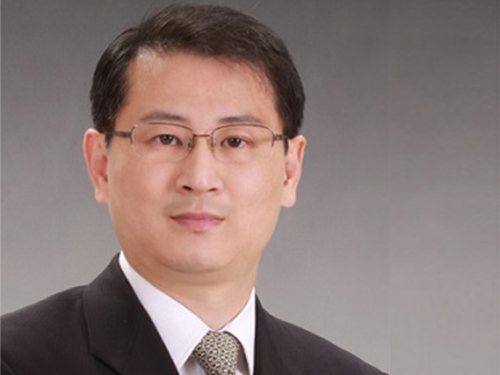 Professor Keon-Jae Lee Lectures at IEDM and ISSCC Forums
Professor Keon-Jae Lee of KAIST’s Materials Science and Engineering Department delivered a speech at the 2015 Institute of Electrical and Electronics Engineers (IEEE) International Electron Devices Meeting (IEDM) held on December 7-9, 2015 in Washington, D.C.
He will also present a speech at the 2016 International Solid-State Circuits Conference scheduled on January 31-February 4, 2016 in San Francisco, California.
Both professional gatherings are considered the world’s most renowned forums in electronic devices and semiconductor technology. It is rare for a Korean researcher to be invited to speak at these global conferences.
Professor Lee was recognized for his research on flexible NAND chips. The Korea Times, an English language daily newspaper in Korea, reported on his participation in the forums and his recent work. An excerpt of the article follows below:
“KAIST Professor to Lecture at Renowned Tech Forums”
By Lee Min-hyung, The Korea Times, November 26, 2015
Recently he has focused on delivering technologies for producing flexible materials that can be applied to everyday life. The flexible NAND flash memory chips are expected to be widely used for developing flexible handsets. His latest research also includes flexible light-emitting diodes (LED) for implantable biomedical applications.
Lee is currently running a special laboratory focused on developing new flexible nano-materials. The research group is working to develop what it calls “self-powered flexible electronic systems” using nanomaterials and electronic technology.
Lee’s achievement with flexible NAND chips was published in the October edition of Nano Letters, the renowned U.S.-based scientific journal.
He said that flexible memory chips will be used to develop wearable computers that can be installed anywhere.
2015.11.26 View 12015
Professor Keon-Jae Lee Lectures at IEDM and ISSCC Forums
Professor Keon-Jae Lee of KAIST’s Materials Science and Engineering Department delivered a speech at the 2015 Institute of Electrical and Electronics Engineers (IEEE) International Electron Devices Meeting (IEDM) held on December 7-9, 2015 in Washington, D.C.
He will also present a speech at the 2016 International Solid-State Circuits Conference scheduled on January 31-February 4, 2016 in San Francisco, California.
Both professional gatherings are considered the world’s most renowned forums in electronic devices and semiconductor technology. It is rare for a Korean researcher to be invited to speak at these global conferences.
Professor Lee was recognized for his research on flexible NAND chips. The Korea Times, an English language daily newspaper in Korea, reported on his participation in the forums and his recent work. An excerpt of the article follows below:
“KAIST Professor to Lecture at Renowned Tech Forums”
By Lee Min-hyung, The Korea Times, November 26, 2015
Recently he has focused on delivering technologies for producing flexible materials that can be applied to everyday life. The flexible NAND flash memory chips are expected to be widely used for developing flexible handsets. His latest research also includes flexible light-emitting diodes (LED) for implantable biomedical applications.
Lee is currently running a special laboratory focused on developing new flexible nano-materials. The research group is working to develop what it calls “self-powered flexible electronic systems” using nanomaterials and electronic technology.
Lee’s achievement with flexible NAND chips was published in the October edition of Nano Letters, the renowned U.S.-based scientific journal.
He said that flexible memory chips will be used to develop wearable computers that can be installed anywhere.
2015.11.26 View 12015 -
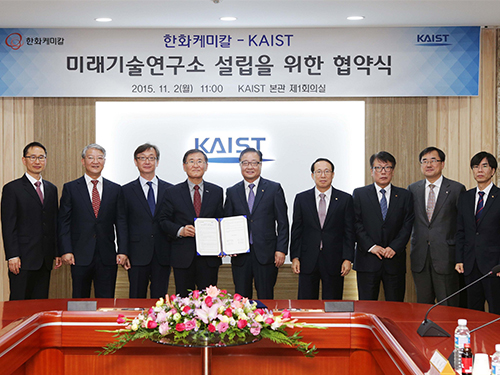 KAIST and Hanwha Chemical Agree on Research Collaboration
KAIST signed a memorandum of understanding (MOU) with Hanwha Chemical Co., Ltd., a Korean chemical and auto manufacturer, on November 2, 2015 to establish a research center on campus.
The research center, which will be named “KAIST-Hanwha Chemical Future Technology Research Center,” will implement joint research projects for five years beginning from 2016 to develop innovative, green technologies that will help the Korean chemical industry boost its global competitiveness and to nurture top researchers and engineers in chemical engineering.
The research center will lead the development of next-generation petrochemical materials and manufacturing technology and the establishment of pure high-refining processes which are more energy-efficient and environmentally friendly. KAIST and Hanwha will strive to secure new technologies that have the greatest commercialization potential in the global market. They will also establish a scholarship fund for 15 KAIST doctoral students in the Department of Chemical and Biomolecular Engineering.
Many professors from the Chemical and Biomolecular Engineering Department including Distinguished Professor Sang Yup Lee, who was listed in the Top 20 Translational Researchers of 2014 by Nature Biotechnology this year, and Professor Hyunjoo Lee who received the Woman Scholar award at the 2015 World Chemistry Conference, will work at the research center.
Professor Lee, the head of the research center, said, “Collaborating with Hanwha will give us a strong basis for our efforts to carry out original research and train the best researchers in the field.”
Chang-Bum Kim, the Chief Executive Officer (CEO) of Hanwha Chemical, said,
“We hope our collaborations with KAIST will go beyond the typical industry and university cooperation. The two organizations will indeed jointly operate the research center, and this will become a new model for industry and university cooperation. We expect that the research center will play a crucial role in the development of new products and technologies to grow the Korean chemical industry.”
In the photo, President Steve Kang of KAIST (fourth from left) and CEO Chang-Bum Kim of Hanwha Chemical (fifth from left) hold the MOU together.
2015.11.01 View 12041
KAIST and Hanwha Chemical Agree on Research Collaboration
KAIST signed a memorandum of understanding (MOU) with Hanwha Chemical Co., Ltd., a Korean chemical and auto manufacturer, on November 2, 2015 to establish a research center on campus.
The research center, which will be named “KAIST-Hanwha Chemical Future Technology Research Center,” will implement joint research projects for five years beginning from 2016 to develop innovative, green technologies that will help the Korean chemical industry boost its global competitiveness and to nurture top researchers and engineers in chemical engineering.
The research center will lead the development of next-generation petrochemical materials and manufacturing technology and the establishment of pure high-refining processes which are more energy-efficient and environmentally friendly. KAIST and Hanwha will strive to secure new technologies that have the greatest commercialization potential in the global market. They will also establish a scholarship fund for 15 KAIST doctoral students in the Department of Chemical and Biomolecular Engineering.
Many professors from the Chemical and Biomolecular Engineering Department including Distinguished Professor Sang Yup Lee, who was listed in the Top 20 Translational Researchers of 2014 by Nature Biotechnology this year, and Professor Hyunjoo Lee who received the Woman Scholar award at the 2015 World Chemistry Conference, will work at the research center.
Professor Lee, the head of the research center, said, “Collaborating with Hanwha will give us a strong basis for our efforts to carry out original research and train the best researchers in the field.”
Chang-Bum Kim, the Chief Executive Officer (CEO) of Hanwha Chemical, said,
“We hope our collaborations with KAIST will go beyond the typical industry and university cooperation. The two organizations will indeed jointly operate the research center, and this will become a new model for industry and university cooperation. We expect that the research center will play a crucial role in the development of new products and technologies to grow the Korean chemical industry.”
In the photo, President Steve Kang of KAIST (fourth from left) and CEO Chang-Bum Kim of Hanwha Chemical (fifth from left) hold the MOU together.
2015.11.01 View 12041 -
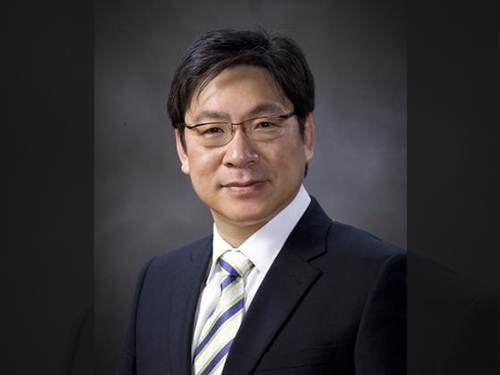 Professor Key-Sun Choi Receives the Order of Service Merit Green Stripes from the Korean Government
The award recognizes Professor Choi’s life-long research effort to make Korean language digitally available, both nationally and internationally.
Professor Key-Sun Choi of the School of Computing at KAIST received the Order of Service Merit Green Stripes from the Korean government at the 569th Korean Language Day, held annually to commemorate the invention of the Korean language, Hangeul. The ceremony took place on October 9, 2015, at the Sejong Center in Seoul.
Professor Choi has distinguished himself in the field of natural language processing (NLP), including Korean language. He developed a Korean NLP parser that enabled information processing and data analysis of Korean language, as well as a digital Korean dictionary, contributing to the advancement of Korean language-based information technology.
Professor Choi also led the way to widespread use of Korean natural language in computing by developing and commercializing open source software to process the Korean language.
He has served leading roles in many of the international academic societies and standardization organizations, among others, as the vice president of Infoterm (the International Information Center for Terminology), president of the Asia Federation of Natural Language Processing, vice chair of ISO/TC 37, a technical committee in the International Organization for Standardization (ISO), and a council member for the International Association of Machine Translation.
2015.10.08 View 9260
Professor Key-Sun Choi Receives the Order of Service Merit Green Stripes from the Korean Government
The award recognizes Professor Choi’s life-long research effort to make Korean language digitally available, both nationally and internationally.
Professor Key-Sun Choi of the School of Computing at KAIST received the Order of Service Merit Green Stripes from the Korean government at the 569th Korean Language Day, held annually to commemorate the invention of the Korean language, Hangeul. The ceremony took place on October 9, 2015, at the Sejong Center in Seoul.
Professor Choi has distinguished himself in the field of natural language processing (NLP), including Korean language. He developed a Korean NLP parser that enabled information processing and data analysis of Korean language, as well as a digital Korean dictionary, contributing to the advancement of Korean language-based information technology.
Professor Choi also led the way to widespread use of Korean natural language in computing by developing and commercializing open source software to process the Korean language.
He has served leading roles in many of the international academic societies and standardization organizations, among others, as the vice president of Infoterm (the International Information Center for Terminology), president of the Asia Federation of Natural Language Processing, vice chair of ISO/TC 37, a technical committee in the International Organization for Standardization (ISO), and a council member for the International Association of Machine Translation.
2015.10.08 View 9260 -
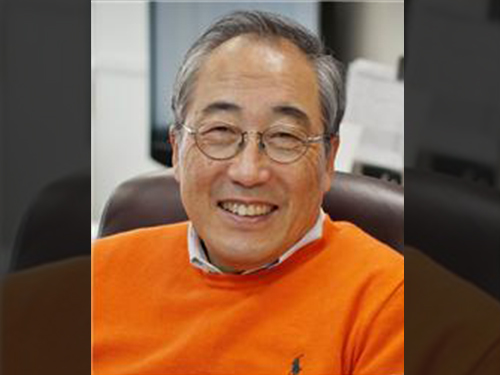 Yang-Hann Kim named recipient of the Rossing Prize in Acoustics Education by the Acoustical Society of America
Courtesy of the Acoustical Society of America (ASA)
Press release issued by ASA on October 8, 2015:
Yang-Hann Kim named recipient of the Rossing Prize in Acoustics Education by the Acoustical Society of America
Melville (NY), 8 October 2015—Yang-Hann Kim, Professor at KAIST (Korea Advanced Institute of Science and Technology), Daejeon, has been named recipient of the Acoustical Society of America (ASA) Rossing Prize in Acoustics Education. The Rossing Prize is awarded to an individual who has made significant contributions toward furthering acoustics education through distinguished teaching, creation of educational materials, textbook writing and other activities. The Prize will be presented at the 170th meeting of the ASA on 4 November 2015 in Jacksonville, Florida.
“It is my great honor to receive the Rossing Prize, which has been given to outstanding scholar members of ASA since 2003. I never dreamed to be one of them.” said Kim. “I must express my deep respect and love to my friend Thomas Rossing: I have known him more than 20 years, always respect what he has done for teaching, writing books, and pioneering work in musical acoustics.”
Yang-Hann Kim is a Fellow of the Acoustical Society of America. He received a Ph.D. from the Massachusetts Institute of Technology. His main research interests in acoustics began with “sound visualization” resulted in the development of the “sound camera” which makes any sound visible instantly. Then he moved to “sound manipulation.” Using his manipulation technology, one can move any sound in space and time, positioning sound, and can create a private sound zone. Sound Visualization and Manipulation, (Wiley, 2013), summarizes these two fields. Dr. Kim’s textbook, Sound Propagation: An Impedance Based Approach (John Wiley and Sons, 2010), is well acknowledged by the associated professional communities as one of best acoustics textbooks. Using his teaching experience at KAIST, he created a YouTube lecture on acoustics and vibration which is also available in MOOC (Massive Open Online Course). He has also presented lectures to over 500 engineers and technicians for the past 30 years.
###
The Acoustical Society of America (ASA) is the premier international scientific society in acoustics devoted to the science and technology of sound. Its 7000 members worldwide represent a broad spectrum of the study of acoustics. ASA publications include the Journal of the Acoustical Society of America—the world’s leading journal on acoustics, Acoustics Today magazine, books, and standards on acoustics. The Society also holds two major scientific meetings per year. For more information about the Society visit our website, www.acousticalsociety.org.
2015.10.06 View 10002
Yang-Hann Kim named recipient of the Rossing Prize in Acoustics Education by the Acoustical Society of America
Courtesy of the Acoustical Society of America (ASA)
Press release issued by ASA on October 8, 2015:
Yang-Hann Kim named recipient of the Rossing Prize in Acoustics Education by the Acoustical Society of America
Melville (NY), 8 October 2015—Yang-Hann Kim, Professor at KAIST (Korea Advanced Institute of Science and Technology), Daejeon, has been named recipient of the Acoustical Society of America (ASA) Rossing Prize in Acoustics Education. The Rossing Prize is awarded to an individual who has made significant contributions toward furthering acoustics education through distinguished teaching, creation of educational materials, textbook writing and other activities. The Prize will be presented at the 170th meeting of the ASA on 4 November 2015 in Jacksonville, Florida.
“It is my great honor to receive the Rossing Prize, which has been given to outstanding scholar members of ASA since 2003. I never dreamed to be one of them.” said Kim. “I must express my deep respect and love to my friend Thomas Rossing: I have known him more than 20 years, always respect what he has done for teaching, writing books, and pioneering work in musical acoustics.”
Yang-Hann Kim is a Fellow of the Acoustical Society of America. He received a Ph.D. from the Massachusetts Institute of Technology. His main research interests in acoustics began with “sound visualization” resulted in the development of the “sound camera” which makes any sound visible instantly. Then he moved to “sound manipulation.” Using his manipulation technology, one can move any sound in space and time, positioning sound, and can create a private sound zone. Sound Visualization and Manipulation, (Wiley, 2013), summarizes these two fields. Dr. Kim’s textbook, Sound Propagation: An Impedance Based Approach (John Wiley and Sons, 2010), is well acknowledged by the associated professional communities as one of best acoustics textbooks. Using his teaching experience at KAIST, he created a YouTube lecture on acoustics and vibration which is also available in MOOC (Massive Open Online Course). He has also presented lectures to over 500 engineers and technicians for the past 30 years.
###
The Acoustical Society of America (ASA) is the premier international scientific society in acoustics devoted to the science and technology of sound. Its 7000 members worldwide represent a broad spectrum of the study of acoustics. ASA publications include the Journal of the Acoustical Society of America—the world’s leading journal on acoustics, Acoustics Today magazine, books, and standards on acoustics. The Society also holds two major scientific meetings per year. For more information about the Society visit our website, www.acousticalsociety.org.
2015.10.06 View 10002 -
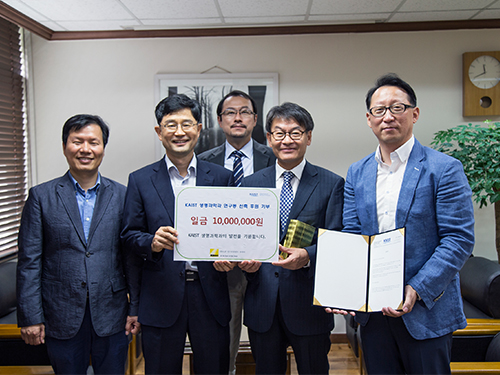 Nikon Instruments Korea Donates a Fund to KAIST's Department of Biological Sciences
Representatives from Nikon Instruments Korea Co., Ltd., a producer of microscopes and measuring instruments, visited the KAIST campus on September 25, 2015, and donated USD 9,000 to the Department of Biological Sciences at KAIST.
A small ceremony to mark the donation took place at the department’s conference room.
In the picture from left to right were Professor Won-Do Heo, Department Head Byung-Ha Oh, Professor Sangyong Jon, President Sam-Sup Jang of Korea Instech, and Director Ik-Soo Yoo of Nikon Instruments Korea.
The department announced that the fund would be used to build its new research center to house the state-of-the-art research equipment and tools for the development of new medicine.
2015.10.03 View 5502
Nikon Instruments Korea Donates a Fund to KAIST's Department of Biological Sciences
Representatives from Nikon Instruments Korea Co., Ltd., a producer of microscopes and measuring instruments, visited the KAIST campus on September 25, 2015, and donated USD 9,000 to the Department of Biological Sciences at KAIST.
A small ceremony to mark the donation took place at the department’s conference room.
In the picture from left to right were Professor Won-Do Heo, Department Head Byung-Ha Oh, Professor Sangyong Jon, President Sam-Sup Jang of Korea Instech, and Director Ik-Soo Yoo of Nikon Instruments Korea.
The department announced that the fund would be used to build its new research center to house the state-of-the-art research equipment and tools for the development of new medicine.
2015.10.03 View 5502